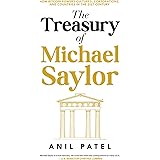Crypto and the 2024 Election: Reshaping US Politics and Digital Asset Regulation
As highlighted in the video above, cryptocurrency has become a significant topic in the 2024 US election. This development marks a new era. Digital assets are no longer just a niche interest. They are now a major political issue. This shift has massive implications for crypto’s future in the United States. Policymakers are now paying close attention. The crypto industry’s voice is growing louder.
The current political climate shows deep divisions. Yet, crypto is seen by many as a common ground. Or, it is a new source of conflict. Its role in American society is expanding rapidly. This means its impact on elections also grows. We must understand these unfolding events. They shape our financial future and technological progress.
The Battle Over SAB 121: Protecting Innovation or Investors?
A major point of contention has been SAB 121. This stands for Staff Accounting Bulletin 121. It was issued by the SEC in March 2022. This policy restricts financial institutions. They are prevented from holding crypto. Being crypto custodians is difficult under this rule. Traditional banks find it hard to engage with digital assets.
The US Senate recently voted to repeal SAB 121. This was a bipartisan effort. A dozen Democrats joined 48 Republicans. Their vote showed a rare unity. This suggested a growing recognition of crypto’s importance. It also showed frustration with the SEC’s approach. This repeal was then sent to President Biden’s desk.
However, President Biden announced his strong opposition. He stated his intention to veto the repeal. His administration believes SAB 121 protects investors. They say it safeguards the broader financial system. This stance is seen by many as contradictory. The policy’s efficacy has been questioned. For example, FTX collapsed shortly after SAB 121 was enacted. The SEC’s role in preventing such events is debated. This event created substantial losses for many consumers. Yet, the policy meant to protect did not stop it.
This situation is like building a fence around a safe harbor. Yet, the main storm rages outside. SAB 121 made it harder for regulated entities to custody crypto. This pushed more activity to unregulated exchanges. Some argue this made the problem worse. It did not offer true investor protection. Instead, it seems to have hindered safe, regulated options. This is a crucial point of debate in the cryptocurrency political landscape.
Spot Ethereum ETFs: A Sudden Shift in Stance
Another significant development involves Spot Ethereum ETFs. These are exchange-traded funds. They would allow investors to gain exposure to Ethereum. This happens without directly owning the crypto. The SEC’s approval of such funds has been awaited. It signals wider acceptance for digital assets.
Historically, the SEC has been cautious. Its stance on crypto ETFs has been slow. Yet, an abrupt change in tone was observed. Exchanges were suddenly asked to update their 19b-4 filings. This request came on an accelerated basis. This move surprised many in the industry. It hinted at a potential approval.
This shift is often linked to political dynamics. Former President Donald Trump announced his pro-crypto stance. This created a new political pressure point. Politicians, it seems, are responding to voter sentiment. Being anti-crypto risks losing votes. Especially in a tight election. This situation shows how quickly crypto in the 2024 election can change. It emphasizes the power of the crypto voter base. The debate around these digital assets is heating up.
The FIT21 Act: Defining the Future of Digital Assets
The Financial Innovation and Technology for the 21st Century (FIT21) Act is monumental. It aims to bring clarity to the US regulatory framework. Currently, the definition of a digital asset in federal law is lacking. This creates uncertainty for businesses and investors. The FIT21 Act seeks to rectify this issue. It will provide a clear definition. This is a crucial step for the industry.
The Act also clarifies roles. It distinguishes between the SEC and the CFTC. The Securities and Exchange Commission oversees securities. The Commodities Futures Trading Commission handles commodities. Crypto assets often blur these lines. The FIT21 Act proposes a framework. If an asset is truly decentralized, it is a commodity. If it is not, it is likely a security. This distinction would end long-running jurisdictional battles. It provides much-needed legal certainty.
This legislative effort would modernize US laws. Other countries have already established similar frameworks. The European Union, the UK, Hong Kong, and Japan offer examples. They have clear guidelines for digital assets. The FIT21 Act would help the US catch up. It would protect crypto users. It would foster innovation. Such a bill is vital for maintaining American leadership. It is seen as a safeguard for financial innovation.
The passage of FIT21 is not just about regulation. It is about future economic competitiveness. If the US fails to adapt, it risks falling behind. It could lose its status as a global leader. Businesses might choose to operate elsewhere. This would impact job creation and technological advancement. A forward-thinking approach is often needed.
Crypto: A Generational Divide and Fight for Freedom
The discussion around crypto often transcends party lines. It is sometimes seen as a generational divide. Younger generations are generally more open to digital assets. They understand new technologies more easily. Older politicians may not grasp crypto’s implications. This creates a gap in understanding. It is not just about Republican versus Democrat. It is about embracing the future.
Some argue that being anti-crypto is anti-innovation. It is also seen as anti-technology. Such a stance can be viewed as anti-privacy. It may also threaten private property rights. The core principles of crypto often align with freedom. It allows individuals more control over their finances. This stands in contrast to centralized systems. A central bank digital currency (CBDC) represents such centralization. This is a concern for many crypto advocates. It represents potential government control over personal finances.
The belief that citizens should be slaves to their government is absurd. Governments should serve their people. Crypto represents a tool for economic freedom. It provides an alternative to traditional systems. If the US becomes anti-crypto, it risks many things. Its citizens could face a more controlled financial future. The nation could lose its global leadership in technology. Its status as the world’s reserve currency could also be jeopardized. This makes the US election and crypto a pivotal moment.
Many believe politicians who oppose crypto are either misinformed. Or, they are influenced by traditional financial institutions. These institutions see crypto as a threat. This is a common pattern in politics. It reflects a battle between old and new systems. The stakes are very high. The direction taken now will affect us all. This makes our active participation critical. Understanding the crypto regulatory landscape is therefore vital.







